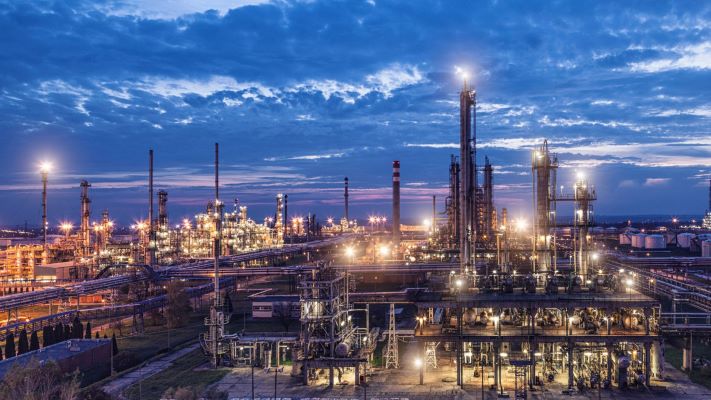MOL produces 1600 tonnes of green hydrogen per year using electricity from renewable sources

MOL has started production of a 10 megawatt capacity green hydrogen plant at its Százhalombatta refinery. The facility produces 1,600 tonnes of clean, carbon-neutral green hydrogen per year which is used for fuel production reducing the Danube Refinery's carbon dioxide emissions by 25,000 tonnes, as much as the annual carbon dioxide emissions of roughly 5,400 typical cars.
MOL Group handed over its new Százhalombatta plant in April, where it produces around 1,600 tonnes of clean, carbon-neutral green hydrogen per year with a 10 megawatt electrolysis unit created by Plug Power. Necessary tasks to start production were carried out, including necessary pressure tests, inspection of the process control system, insertion and connection of the electrolytic cells into the system, and the water treatment system was put into operation as well.
Plug Power's electrolysis equipment uses electricity from renewable sources to break down water into hydrogen and oxygen. This means that no polluting by-products are generated and, in fact, the plant produces 8-9 tonnes of pure oxygen per tonne of hydrogen. The US company has offered MOL an innovative and reliable technology: the hydrogen generators, optimized to produce pure hydrogen, have almost 50 years of operational experience.
“Green hydrogen is a clean and versatile energy source that we currently use for fuel production to reduce our carbon dioxide footprint, and according to our plans, soon it can be directly used in the transportation sector as well. Production and use of green hydrogen helps the green energy transition in an innovative way, which is a fundamental goal of MOL’s strategy. After Százhalombatta, we are planning similar plants in Bratislava and Rijeka of which the latter can commence operations in 2026,”said Ádám Horváth, New and Sustainable Businesses Vice President of MOL Group.
The EUR 22 million new plant will reduce the carbon footprint of the Danube Refinery by more than 25,000 tonnes of carbon dioxide per year. The new technology will gradually replace the natural gas-based production process, which currently accounts for one sixth of MOL Group's total carbon dioxide emissions.
Subscribe to our newsletter & stay updated.